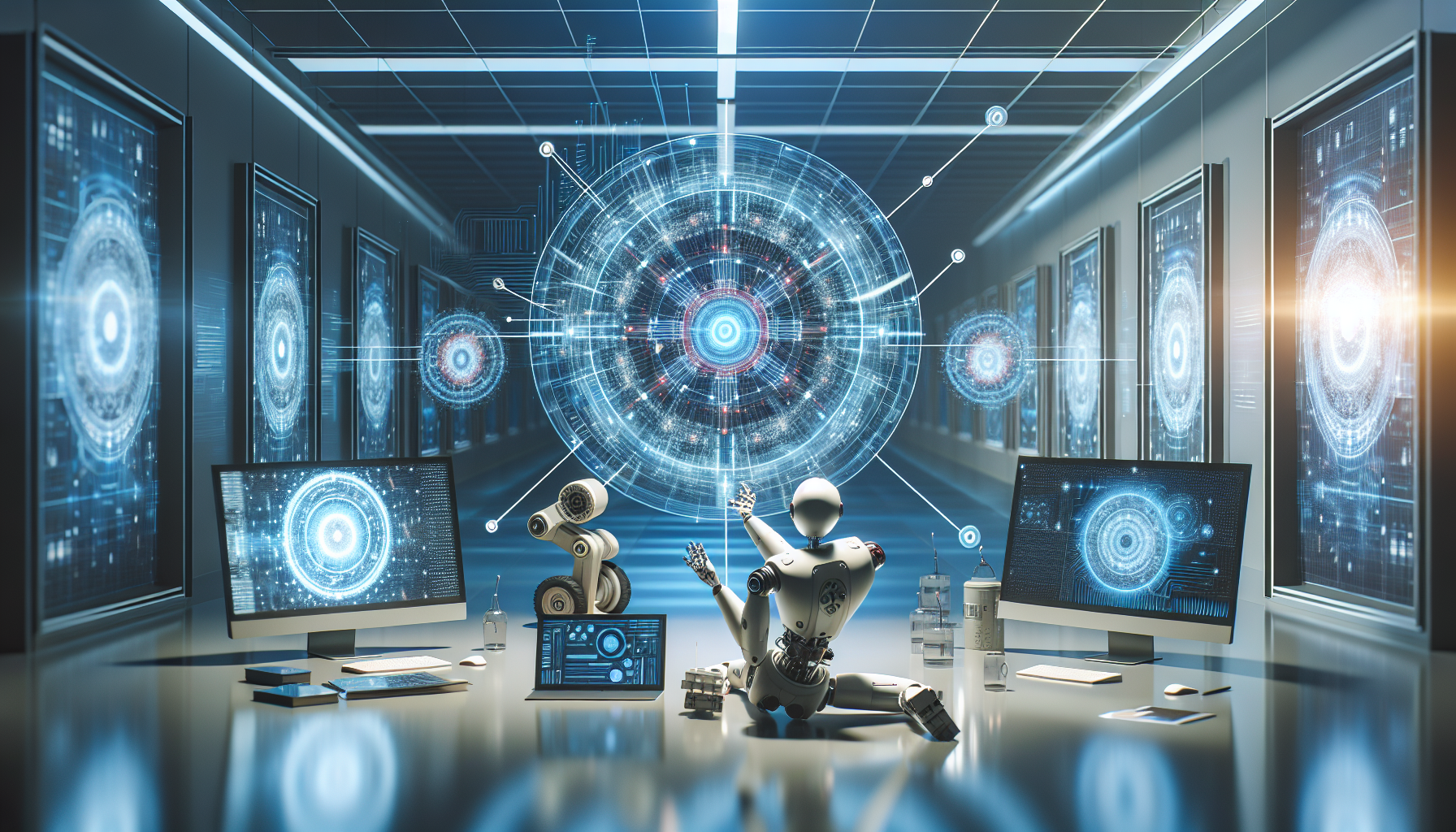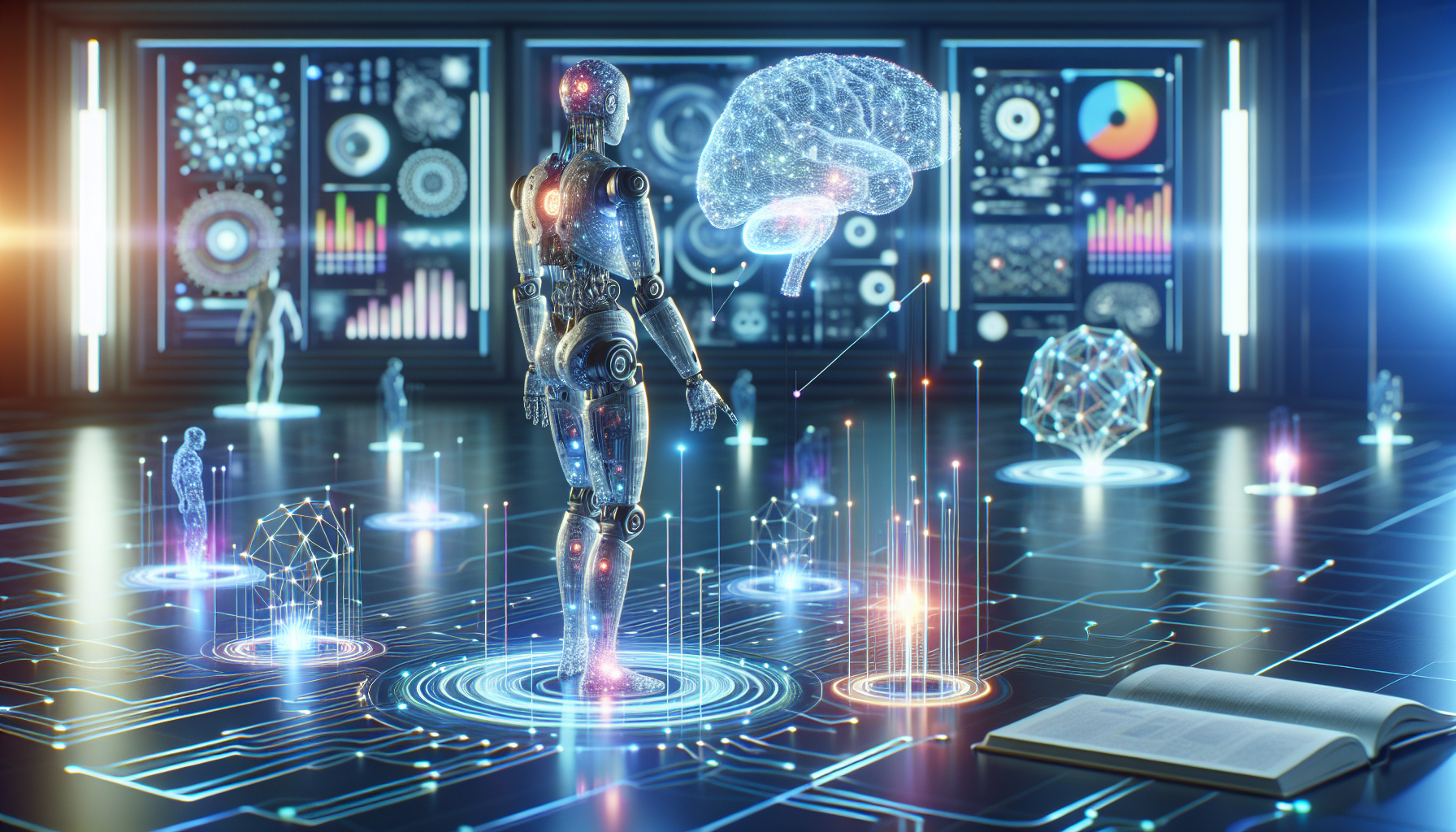
The Evolution of Artificial Intelligence: A How-to Guide to Understanding Its Journey from Concept to Reality
June 22, 2025
Artificial Intelligence (AI), once a figment of science fiction, now permeates every facet of our daily lives, from personal assistants to complex algorithms shaping global industries. Understanding its evolution from a theoretical concept to a tangible reality requires delving into the intricacies of its development and recognizing the milestones that have marked its journey.
The inception of AI is rooted in philosophical inquiries about the nature of intelligence and the possibility of replicating it. Early thinkers pondered whether machines could emulate human thought processes, giving rise to the foundational concept of AI. This philosophical groundwork laid the path for more rigorous scientific exploration and the eventual birth of AI as a field of study.
The transition from concept to reality began with the advent of digital computing. Early computers provided the necessary infrastructure for executing complex calculations, a prerequisite for developing intelligent systems. Researchers started to design algorithms that could process information in ways reminiscent of human reasoning, albeit in a rudimentary form. This phase marked the beginning of AI's practical application, as these algorithms demonstrated the potential of machines to perform tasks traditionally reserved for human intellect.
One notable aspect of AI's evolution is the development of machine learning, a subset that has significantly advanced the field. Machine learning enables systems to improve their performance over time without explicit programming, a revolutionary concept that has transformed AI's capabilities. By analyzing vast amounts of data, machine learning models can identify patterns and make predictions, allowing AI to tackle increasingly complex challenges.
During this transformative period, AI research faced significant hurdles, primarily due to limitations in computational power and data availability. Despite these challenges, several groundbreaking achievements propelled AI forward. The creation of neural networks, inspired by the human brain's architecture, enabled machines to process information in more sophisticated ways. These networks laid the groundwork for the deep learning revolution, which brought AI closer to human-level performance in specific tasks.
The integration of AI into various industries has been a pivotal factor in its evolution. From healthcare to finance, AI systems are now indispensable tools, providing insights and automating processes that enhance efficiency and accuracy. The healthcare sector, for instance, has benefited tremendously from AI's ability to analyze medical data, assist in diagnostics, and even predict patient outcomes. Similarly, in finance, AI algorithms drive market analysis, risk assessment, and automated trading, showcasing the technology's versatility and impact.
AI's journey from concept to reality has not been without ethical and societal implications. As AI systems become more autonomous, concerns about privacy, bias, and accountability have emerged. Developing ethical guidelines and regulatory frameworks is crucial to address these challenges and ensure that AI's deployment aligns with societal values and norms. This aspect of AI's evolution underscores the need for a balanced approach, where technological advancement is harmonized with ethical considerations.
The collaborative nature of AI research has been instrumental in its progress. Interdisciplinary partnerships between computer scientists, engineers, ethicists, and industry leaders have fostered innovation and led to breakthroughs that might not have been possible in isolation. This collaborative spirit is essential in navigating the complex landscape of AI development, ensuring that diverse perspectives contribute to its responsible evolution.
As AI continues to evolve, it promises to push boundaries and redefine what is possible. The future holds exciting prospects, from AI-powered systems that enhance human creativity to autonomous machines that redefine transportation. However, this journey also invites reflection on the role of human oversight and the ethical dimensions of AI's integration into society.
The evolution of artificial intelligence from a theoretical construct to a practical reality is a testament to human ingenuity and the relentless pursuit of knowledge. It challenges us to consider not only the technological possibilities but also the societal implications of an increasingly intelligent world. As we ponder AI's future trajectory, we must ask ourselves: How can we harness this powerful tool to benefit humanity while safeguarding the values that define us?


